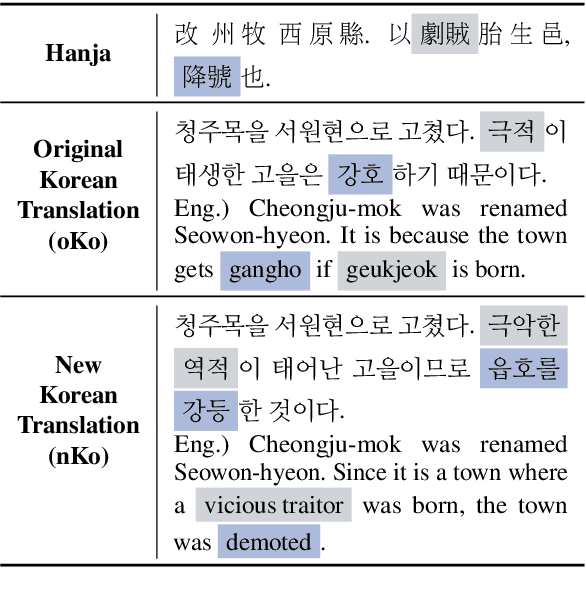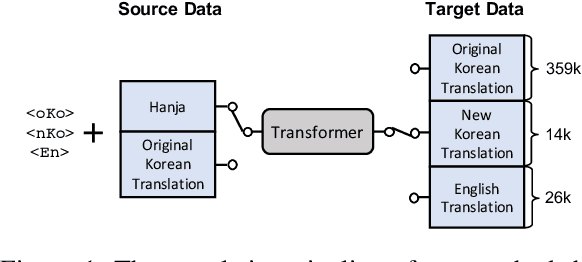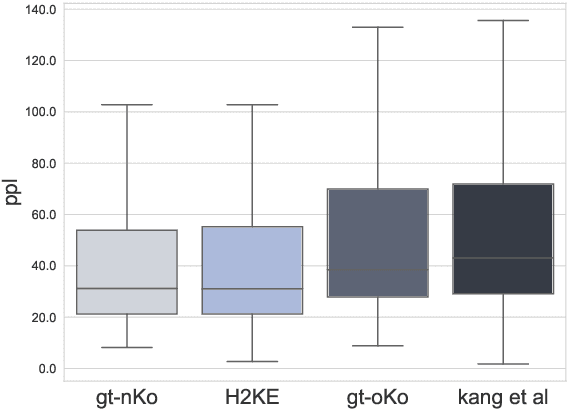Translating Hanja historical documents to understandable Korean and English
Paper and Code
May 20, 2022



The Annals of Joseon Dynasty (AJD) contain the daily records of the Kings of Joseon, the 500-year kingdom preceding the modern nation of Korea. The Annals were originally written in an archaic Korean writing system, `Hanja', and translated into Korean from 1968 to 1993. However, this translation was literal and contained many archaic Korean words; thus, a new expert translation effort began in 2012, completing the records of only one king in a decade. Also, expert translators are working on an English translation, of which only one king's records are available because of the high cost and slow progress. Thus, we propose H2KE, the neural machine translation model that translates Hanja historical documents to understandable Korean and English. Based on the multilingual neural machine translation approach, it translates the historical document written in Hanja, using both the full dataset of outdated Korean translation and a small dataset of recently translated Korean and English. We compare our method with two baselines: one is a recent model that simultaneously learns to restore and translate Hanja historical document and the other is the transformer that trained on newly translated corpora only. The results show that our method significantly outperforms the baselines in terms of BLEU score in both modern Korean and English translations. We also conduct a human evaluation that shows that our translation is preferred over the original expert translation.
 Add to Chrome
Add to Chrome Add to Firefox
Add to Firefox Add to Edge
Add to Edge